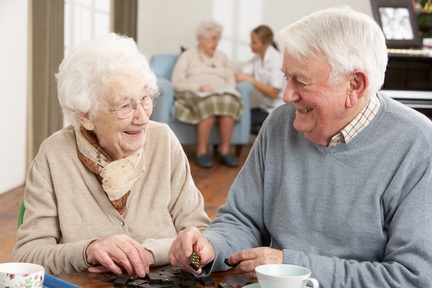Free condoms go to sexually active elderly to halt rising rate of STIs
Pensioners are to get free condoms to stem the rising rates of sexually transmitted infections (STIs) amongst the elderly population.

'Jiggle, Wiggle' campaign
A campaign named ‘Jiggle, Wiggle’ is targetting older people across Derbyshire, where the NHS will give out condoms at GP surgeries and other local venues.
Figures reveal a rise in STIs among people aged 60+. Statistics from Public Health England show a 25 per cent increase in people aged over 65 diagnosed with gonorrhea in 2017, when compared to the year before.
Rebecca Spencer, general manager of the initiative, launched by Derbyshire Community Health Services NHS Foundation Trust, said “We want to make residents aware that sexual health services are not just for young people - they are for all people."
There has also been a 20 per cent rise in cases of syphilis in 2017, in comparison to 2016.
Ms Spencer said: “We offer specialist services at 11 locations in Derbyshire, as well as through GP and pharmacy providers and an online service which allows residents to order a STI and HIV testing kit online and get it delivered.”

A quarter more women over 65 were diagnosed with herpes in 2017 than the previous year. Some 15 per cent more over 65-year-olds had chlamydia in 2017, when compared to the year before.
While women aged 60+ may not get pregnant and some older men have undergone vasectomies, figures show the elderly are still putting themselves at risk of sexually transmitted infections.
Ms Spencer added: "Although most STIs are diagnosed in people aged 15-24, STIs are not just prevalent in young people”.
A brochure called ‘Older People in Care Homes: Sex, Sexuality and Intimate Relationship’ handed out at the end of last year, was intended to help elderly people in the county’s care homes.
According to National Institute for Health and Care Excellence (NICE) which published an impact report on sexual health (11 February): ‘Sexually transmitted infection rates have stabilised over recent years though recent trends show that some infections are increasing’.
In 2017, two of the most commonly diagnosed STIs were chlamydia and gonorrhoea.
There has been a 150 per cent rise in the number of people diagnosed with syphilis in 2017, when compared to 2008. There was a 200 per cent leap in the number of people diagnosed with gonorrhoea in 2017 (when compared to 2008).
Latest News
 29-Jul-24
Dementia Bus gives carehome.co.uk staff insight into life with dementia
29-Jul-24
Dementia Bus gives carehome.co.uk staff insight into life with dementia
 01-Mar-24
Find out the top care homes in 2024
01-Mar-24
Find out the top care homes in 2024
 21-Mar-23
UK's top care homes in 2023 revealed
21-Mar-23
UK's top care homes in 2023 revealed
 03-Jan-23
carehome.co.uk launches free care helpline
03-Jan-23
carehome.co.uk launches free care helpline
 13-Dec-22
5 mins with Emily Whitehurst, chief operating officer for Constantia Healthcare
13-Dec-22
5 mins with Emily Whitehurst, chief operating officer for Constantia Healthcare